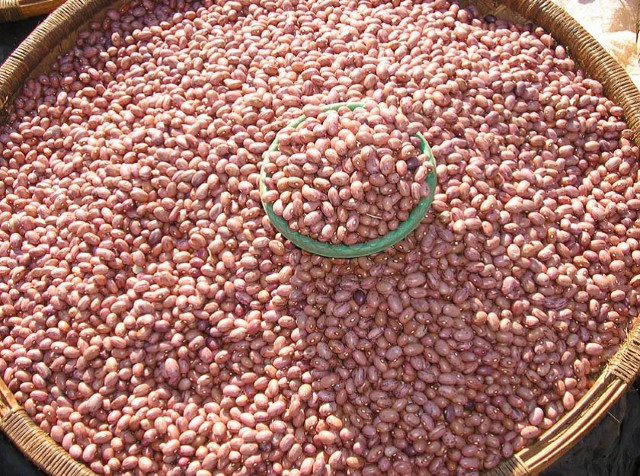
Bean Seed Delivery
Lead Organization:
Southern Africa Bean Research Network
Partner Organizations:
ARI-Uyole, IIAM, DAR
Community of Practice:
Countries:
Mozambique Tanzania Malawi
Duration:
1/2007—12/2010
Overview:
For resource-poor households in Malawi, Mozambique and Tanzania, the bean crop is both an important source of essential nutrients and a critical source income. The development and adoption of short duration bean varieties -maturing in three months, for three potential plantings per year would help to shorten hunger periods and to provide families with quick cash. The national seed programs, along with SABRN and the International Center for Tropical Agriculture (known by its Spanish acronym CIAT), have developed improved varieties with higher yields but these have often not been adopted because of the disconnect between the NARS and the farmer seed groups, rural service providers, and other potential bean seed providers.
This project seeks to enhance bean productivity and bean seed delivery systems by developing a range of partnerships between non-governmental organizations, community-based organizations, farmer organizations, government-related organizations, and private sector actors. The project will identify and verify farmers’ bean variety preferences in relation to diverse ecological conditions. To ensure farmers’ access to these preferred bean genotypes, the project will use a range of seed delivery channels, testing the efficiency of various strategies to deliver a range of products to a variety of user groups. The project will enhance the skills and knowledge of partners on various aspects of bean seed production and delivery.
Grant Aims:
General objective: To enhance bean (P.vulgaris) productivity through user-oriented germplasm selection and enhanced bean seed production/delivery systems in select areas of Malawi, Mozambique and Tanzania.
Specific objectives: To identify and verify farmers’ bean variety preferences in relation to diverse agroecological conditions, such as drought, pests, diseases, soil fertility; and socio-economic criteria, such as market preferences, post-harvest qualities, gender, and wealth; To develop impact-oriented bean seed production and delivery systems geared to delivering a range of products to a variety of users; To enhance skills and knowledge of partners on various aspects of bean seed production and delivery systems, such as participatory variety selection, decentralized seed systems, and gender and equity issues.